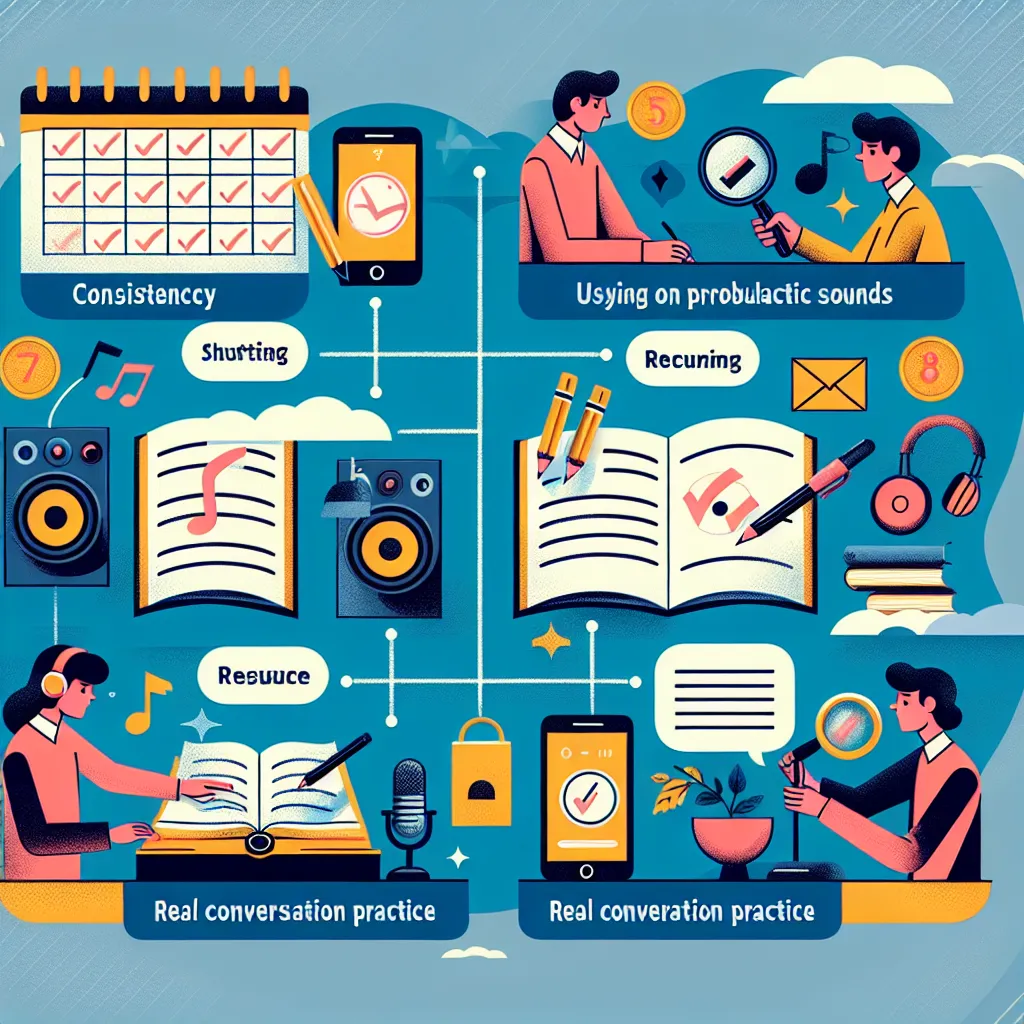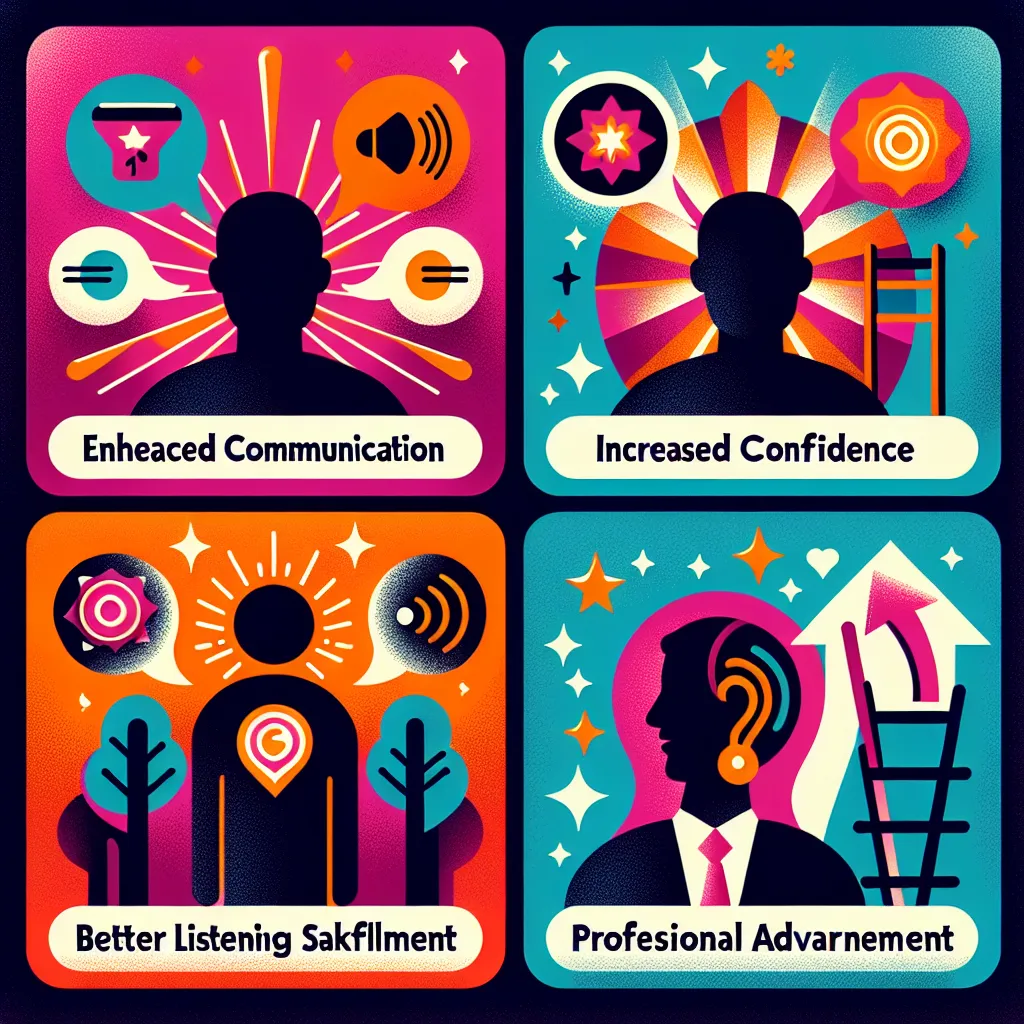Are you looking to improve your English pronunciation? With the right tools at your fingertips, mastering English sounds and intonation has never been easier. In this comprehensive guide, we’ll explore the Best Apps For English Pronunciation Practice, helping you speak more clearly and confidently.
Why Focus on English Pronunciation?
Before diving into the apps, let’s understand why pronunciation is crucial in language learning. Clear pronunciation:
- Enhances communication effectiveness
- Boosts confidence in speaking
- Reduces misunderstandings
- Improves listening skills
As the saying goes, “Practice makes perfect,” and with these apps, you’ll have ample opportunity to refine your pronunciation skills.
 English pronunciation practice
English pronunciation practice
Top Apps for English Pronunciation Practice
1. ELSA Speak: AI English Pronunciation Coach
ELSA (English Language Speech Assistant) uses artificial intelligence to provide personalized feedback on your pronunciation.
Features:
- Real-time feedback on pronunciation
- Customized lessons based on your proficiency
- Extensive library of words and phrases
Why it’s effective: ELSA’s AI technology can detect even subtle pronunciation errors, helping you achieve near-native accuracy.
2. Duolingo: Learn English
While Duolingo is known for teaching multiple languages, its English course includes excellent pronunciation exercises.
Features:
- Gamified learning experience
- Speaking exercises with voice recognition
- Bite-sized lessons for daily practice
Why it’s effective: Duolingo’s engaging format makes pronunciation practice fun and addictive.
3. FluentU: Learn English with Videos
FluentU turns real-world videos into personalized language learning lessons, including pronunciation practice.
Features:
- Interactive captions with pronunciations
- Quizzes that include speaking exercises
- Wide variety of content (movies, music videos, news)
Why it’s effective: Learning pronunciation in context helps you understand natural speech patterns.
4. Sounds: Pronunciation App
Developed by Macmillan Education, this app focuses specifically on English sounds and phonetics.
Features:
- Interactive phonemic chart
- Recording and playback functionality
- Pronunciation quizzes and games
Why it’s effective: Its focus on individual sounds helps you master the building blocks of English pronunciation.
5. BBC Learning English
The BBC’s free app offers a wealth of resources for English learners, including pronunciation guides.
Features:
- Daily lessons with audio
- Pronunciation tips from experts
- Videos explaining English sounds
Why it’s effective: Content from native speakers helps you tune your ear to authentic English pronunciation.
Tips for Maximizing Your Pronunciation Practice with Apps
- Consistency is key: Set aside time each day for pronunciation practice.
- Use the recording feature: Many apps allow you to record yourself. Compare your pronunciation to the native speaker’s.
- Focus on problematic sounds: Identify sounds that are challenging for you and prioritize those in your practice.
- Combine apps with other resources: Supplement app practice with pronunciation tips for fluent English speaking to enhance your overall skills.
- Practice with real conversations: Use what you’ve learned in actual conversations to solidify your skills.
 Pronunciation practice tips
Pronunciation practice tips
Common Pronunciation Challenges and How Apps Can Help
Th Sound
Many learners struggle with the ‘th’ sound, often pronouncing it as ‘s’ or ‘t’.
App solution: Use ELSA Speak’s targeted exercises for ‘th’ sounds, practicing words like “think,” “three,” and “breathe.”
Vowel Sounds
English has many vowel sounds that don’t exist in other languages.
App solution: Sounds: Pronunciation App’s interactive phonemic chart helps you distinguish between similar vowel sounds.
Word Stress
Incorrect word stress can make your speech hard to understand.
App solution: FluentU’s video-based lessons show you how native speakers stress words in context.
Connected Speech
In natural English, words often blend together, which can be confusing for learners.
App solution: BBC Learning English offers specific lessons on connected speech, helping you understand and reproduce these patterns.
The Phonemic Chart: A Key to Perfect Pronunciation
Understanding the phonemic chart is crucial for mastering English pronunciation. Here’s a brief overview:
- 44 sounds in English (12 vowels, 8 diphthongs, 24 consonants)
- Each sound has a unique symbol
- Mastering these sounds improves overall pronunciation
For a deep dive into using phonetics to improve your pronunciation, check out our guide on how to improve pronunciation using phonetics.
10 Commonly Mispronounced English Words
- Pronunciation (/prəˌnʌnsɪˈeɪʃən/)
- Worcestershire (/ˈwʊstəʃər/)
- Specifically (/spəˈsɪfɪkli/)
- Espresso (/eˈspresəʊ/)
- Epitome (/ɪˈpɪtəmi/)
- Quinoa (/ˈkiːnwɑː/)
- Colonel (/ˈkɜːnl/)
- Choir (/ˈkwaɪər/)
- Subtle (/ˈsʌtl/)
- Mischievous (/ˈmɪstʃɪvəs/)
Practice these words using the apps mentioned above to perfect your pronunciation.
Conclusion
Improving your English pronunciation is a journey, and these apps are excellent companions along the way. Remember, consistent practice is the key to success. Start with one or two apps that appeal to you, and make pronunciation practice a part of your daily routine.
For more tips on sounding natural in English, don’t forget to read our article on pronunciation tips for sounding more natural in English.
Which app are you most excited to try? Share your experiences and progress in the comments below. Happy practicing!




